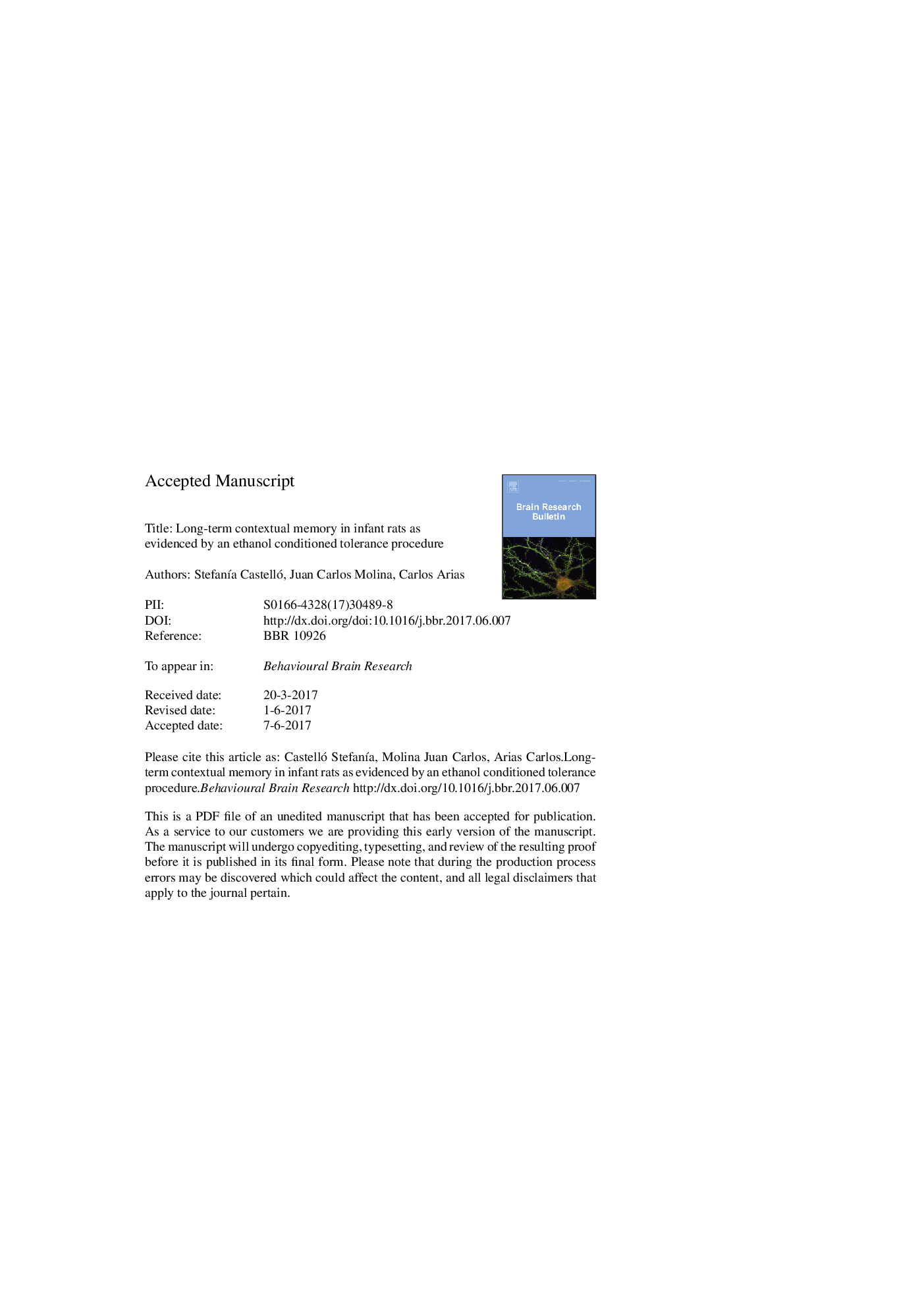ترجمه فارسی عنوان مقاله
حافظه متنی درازمدت در موش های نوزاد، همانطور که توسط روش تحمل پذیری اتانول اثبات شده است
عنوان انگلیسی
Long-term contextual memory in infant rats as evidenced by an ethanol conditioned tolerance procedure
| کد مقاله | سال انتشار | تعداد صفحات مقاله انگلیسی |
|---|---|---|
| 125624 | 2017 | 33 صفحه PDF |
منبع

Publisher : Elsevier - Science Direct (الزویر - ساینس دایرکت)
Journal : Behavioural Brain Research, Volume 332, 14 August 2017, Pages 243-249

